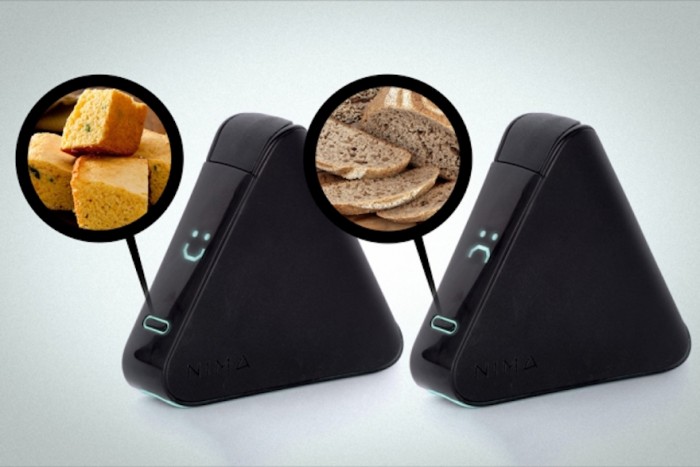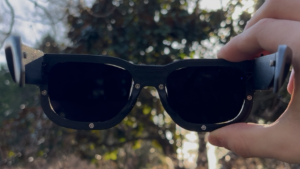
Millions of people suffer from nonceliac gluten intolerances, according to the National Foundation for Celiac Awareness. Even trace amounts of the protein — found in wheat, barley, and rye — in a whole plate of food can cause adverse reactions. Nima, made up of researchers at the Massachusetts University of Technology (MIT), have created a portable highly sensitive gluten sensor that lets users know if their food is safe to eat, making dining out less stressful.
Also called Nima, the 3-inch-tall triangular device comes with disposable capsules. The device detects gluten in small amounts of food or liquid placed inserted into the capsule. The capsule is inserted into the device, which mixes the food into a solution that detects gluten. In two to three minutes, a digital display appears on the sensor, indicating if the food sample does or doesn’t contain gluten.The result is automatically sent to an app Nima has developed.
The device also creates a community using its app. The diner can enter information about where and what they ate, and whether the food contained gluten. Any Nima user can log in to see the results.
Chief Product Officer Scott Sundvor says the device creates peace of mind. “Right now, we don’t know what’s in our food, whether it is allergens, pesticides, or other harmful chemicals,” he says. “There’s not a good way to get that data. We want to give people the ability to understand their food better and how it affects their health.”
Next year, Nima plans to release two new sensors, one for peanuts and one for dairy, which is “surprisingly sneaky,” Sundvor says. “A lot of people are getting sick from dairy allergies, so that will be a big market,” he adds.






